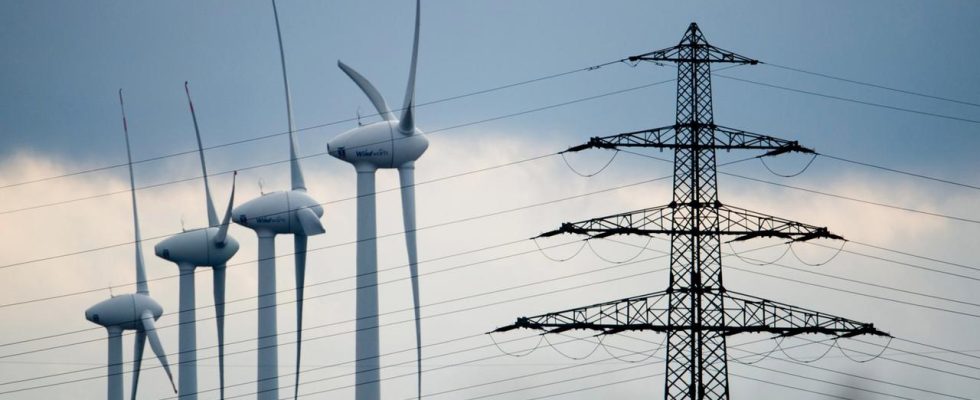The construction of the SuedLink has been delayed for years, and only 17 of the planned 700-kilometer power line have been approved so far. The long official procedures slow down the project again and again.
It is intended to accelerate the energy transition in Germany: the SuedLink power line. The route is to transport electricity generated from wind power in northern Germany to southern Germany over a distance of around 700 km. The investment volume is around ten billion euros. “The SuedLink transmission route is one of the key projects in the energy transition in Germany,” said EnBW CEO Andreas Schell.
The federal government lists SuedLink in the coalition agreement as one of the “particularly priority projects”. But: “We have the dilemma in the country that we are delaying major projects,” said Schell. “That must not happen in the case of SuedLink. Successful expansion is a basic prerequisite for being able to exit coal as early as 2028.” EnBW announced this goal in March.
Not ready until 2028
Actually, the route should have been completed last year. However, of the planned 700 kilometers, only a 17.6-kilometer section from Leingarten to Bad Friedrichshall has currently been approved. According to the two transmission system operators Tennet and TransnetBW, who are building the line, the entire route is not expected to be completed until the end of 2028.
Because there are numerous obstacles during construction. According to the EnBW boss, just transporting the cable for the route is a challenge, since one meter of cable weighs 42 kilograms. Some roads are not designed for such a load and would have to be expanded at certain points.
In addition, heavy-duty transports have to go through a complex approval process; for the cables you need at least 8000 transport permits. And if the dimensions of the requested heavy transport differ only slightly on the day of departure, the permit expires immediately. These approval procedures are extremely time-consuming.
property owner unknown
What is also slowing down the expansion of SuedLink is unclear ownership. According to Schell, the route runs through 20,000 properties, and some of the owners are unknown. In the project team of the EnBW subsidiary TransnetBW and Tennet, some employees are solely involved in concluding contracts with owners.
The SuedLink is also becoming more and more expensive for EnBW. After citizens’ initiatives and the Bavarian state government, which had opposed the expansion of the route, pushed through priority underground cabling, the costs more than doubled. “They wanted to do the right thing because then there would be less resistance,” said Schell.
Construction to start this week
Although not all approvals have been completed, the production of the cables has already started. According to EnBW boss Schell, there are several interim storage facilities across Germany. And this week, Federal Economics Minister Robert Habeck is expected to start construction of a so-called converter in Leingarten near Heilbronn.
Converters convert direct current into alternating current and vice versa. Alternating current comes out of standard household sockets, and the voltage can be changed quite easily with transformers. However, direct current is used for the long journey from the north to the south of Germany because less energy is lost in the process.

